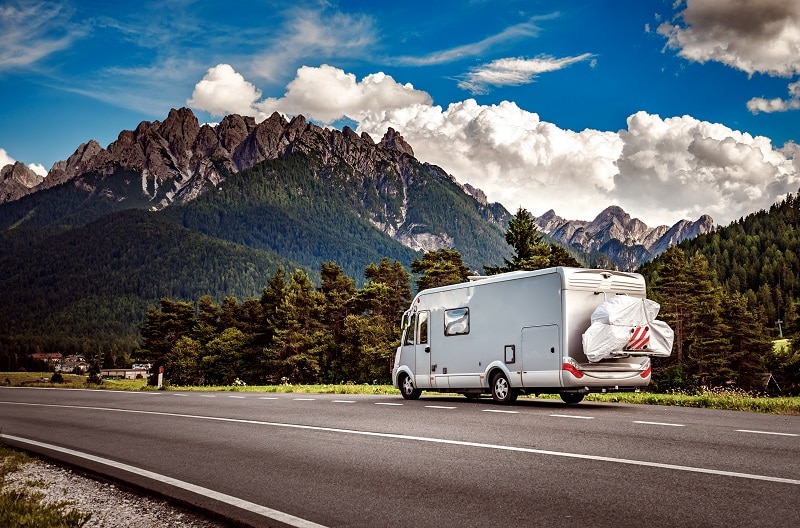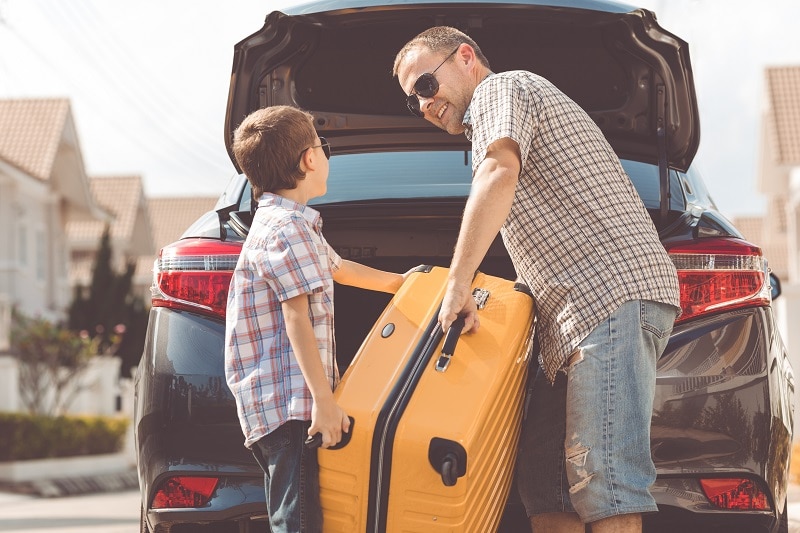The breaks and short vacation periods are perfect to unwind and spend a few days together as a family. Any trip that we plan, however close, can be very fun and beneficial for everyone. For most people, traveling has very positive effects: it allows you to disconnect from your routine and stress, to live unforgettable experiences, to get reacquainted with yourself, to open your mind, to know other realities and cultures, etc. Children are no exception, they enjoy good family moments, develop a more rational, reflective and critical thinking and, in addition, acquire new values and skills of an emotional and social nature, among others.
How to organize our family trip
All we have to do is plan ahead of time a trip that can be entertaining for all members of the family, especially for the kids. Here are ten practical tips to make the trip as good as possible.

1. Enjoy the voyage the whole way
Those few days of vacation and much-awaited rest begin with the trip. We have to enjoy packing, getting into the car, driving… The trip can be as fun as the destination. We have to try that our children are entertained in the trip and enjoy observing the places which we pass through on our way.
2. Hire a guide for your outdoor activities
When traveling to a new place where you plan on enjoying lots of outdoor activities with your family, it is always a great idea to hire a guide who can be with you when you are outside. Finding the right guide for your next activity is now very easy with 57hours and we have benefited from using this site when we are looking to go back country skiing or mountain biking.
3. Plan the trip well
It is important to organize the trip so that it does not become too long for the children or the elderly. If you go by car, you should stop at least every two hours to rest and take a break with snacks or drinks. In addition, we must plan shorter and more dynamic excursions in which you do not get bored of the trip. It is important that the children can take a nap at some point because otherwise they will end up exhausted and in the afternoon they will be too tired to do any activity.
4. Involve everyone

A good idea is to involve the whole family in the planning process. If something goes wrong, they cannot blame you. Days before the trip you can all sit down and decide the itineraries and places that you could visit by majority. You can search for these itineraries with the help of maps and the whole family on the internet.
5. Assign a responsibility for each member
Another practical advice is that each member of the family takes responsibility for one thing: for example, the teenage daughter can be in charge of water, the eight-year-old son can be in charge of the useful paper handkerchiefs, the mother can be in charge of the trip itinerary and the father of the sandwiches. That way, each one will have their mission during the trip and all will collaborate to make it a success.
6. The travel diary

Each member of the family can take pictures and collect leaflets for the places you are visiting. You can try to make them peculiar things like photographs of strange names or different places or a different sheet that you have found on the ground. You can also save photographs in which, for example, a spontaneous one has been taken. When you get home you can put everything together in a kind of travel diary in which everything that has happened appears. The travel diary will help you remember all the experiences have lived and enhance the memory of the trip and family bonding.
7. Discovering children
The children usually get bored during the trip because they do not know what to do. If they get bored they will be asking all the time when you’ll arrive or looking at the smartphone or the tablet. A good idea is to give them a paper map of what they usually give away in hotels or information offices so they can see where you’re going and discover things. You can search for monuments, museums and places of interest. Surely they will love it and they might stop getting bored!
8. Learn the language

If you are going to travel abroad, another good idea is to learn some words or phrases from the local language before embarking on the trip. Although English is spoken in almost all places and most of our children know this language, it can be fun to understand the locals when we go to eat or ask in a museum.
9. Creative memories
Another good advice is to avoid purchasing typical souvenirs such as t-shirts, mugs or key rings with the names of each city or town. It is better to start a unique collection of souvenirs that represent the region you have just visited. For example, a small wooden box from a city known for its wood carvers or a chocolate bar if it is the local product can be great ideas.
10. Set technology breaks
Trying to have all the family members turn off their technological devices during the whole trip will be complicated especially if you are traveling with adolescents. It is best to remember that at certain times you all have to turn off your devices at the same time, such as while visiting museums or other places of interest or group meals. Do not forget that you as the adults have to set an example and learn to disconnect.














